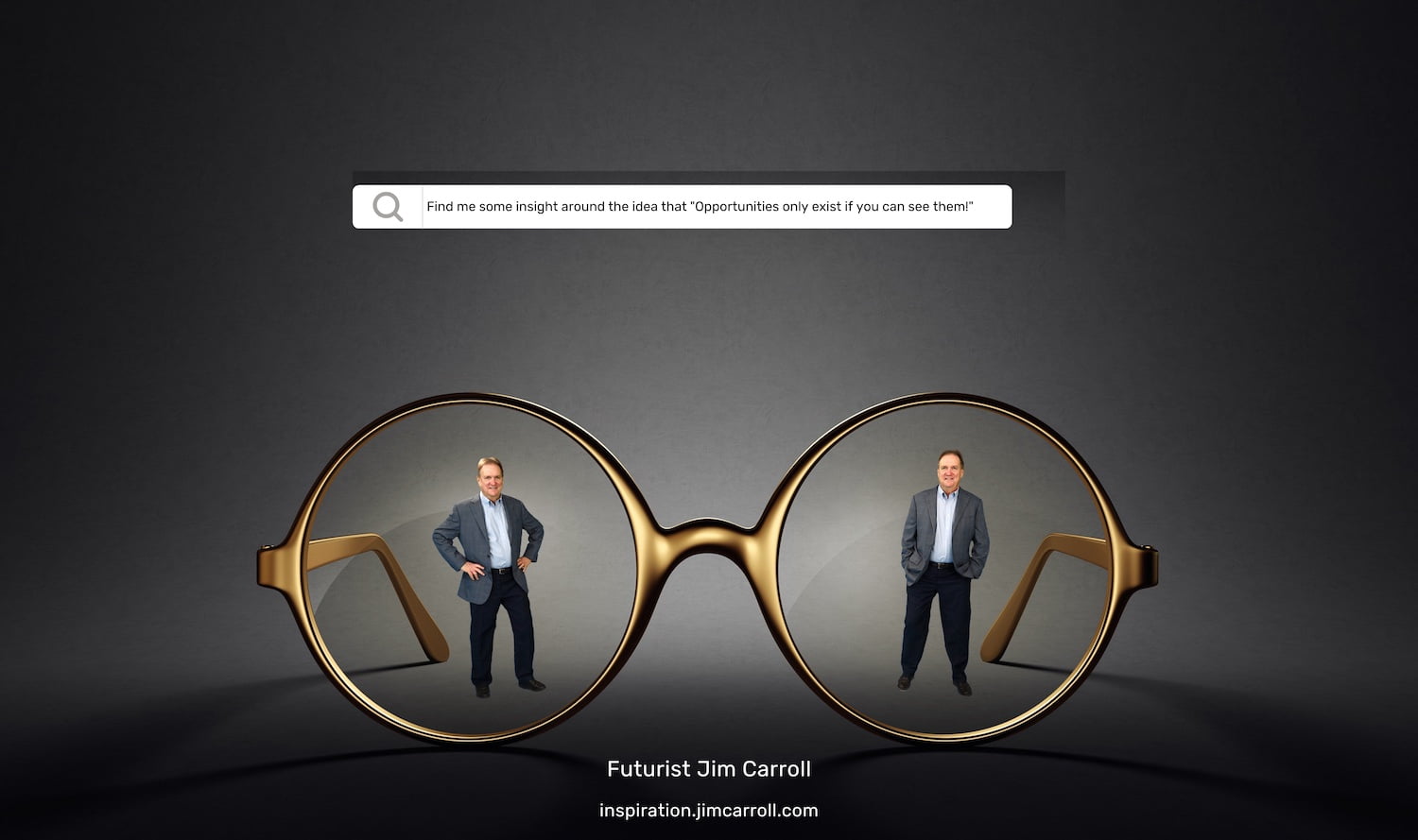“Opportunities only exist if you can see them!” – Futurist Jim Carroll

In 1998, a few years before Steve Jobs announced the iPod, I had an Mp3 player called the Eiger F10, arguably the world’s first portable digital entertainment device.

A small little thing, it held the music in digital format in removable memory – flash cards, as it were – and so the capacity you had depended on the card you used. I think mine could hold about 20 songs. To get music onto the device, I had to plug the card into my computer, encode some songs into the proper format, and transfer them. And to get those songs into the proper format, I had to ‘rip’ my CDs – that is, use some special software to take them off of a CD and turn them into an Mp3 file.
And so years before the arrival of the digital music industry, I was already participating in one.

A few years later, I upgraded to a Creative Nomad Jukebox – a true media powerhouse, it could hold thousands of songs. It was rather big and bulky though, and the same problem remained – it wasn’t easy to get music onto the device.
The result? I kept busy at the time digitizing my entire library of about 1,500 CDs, since there was really no other way to get music onto these little wonders of portability. This state of affairs existed for a few years, with a number of new digital music devices appearing on the market, but all with the same problem – music accessibility.
I still have these two devices, and on occasion will take them out, sharing them on stage as examples of the failure of forward-oriented thinking. After all, it took the insight of Steve Jobs at Apple to realize that the fundamental problem with this wonderful emerging technology was that the digital music issue had to be solved before a true market for such a device emerged. Once he figured out the nature of the real opportunity in front of the organization – music portability combined with easy downloads via an online store with the participation of the record labels – that the real industry of digital music emerged. And with that, Apple began to live up to its potential as the world’s leading innovative organization, with an observation I often share on stage – that at times, some 60% of Apple’s revenue comes from products that did not exist five years before.
The genius of Jobs was that he could see and perceive opportunities that others could not see; he could spot potential markets that did not yet exist; he could find opportunities where others had blind spots. He did it again with the announcement of the iPhone, famously concluding that it was an e-mail device, Web browser, and portable media player combined.
So why was it that so many other people and industries missed out on what is now an obvious opportunity? After all, we already had Mp3 players, opportunities to create digital music and a market for digital music players. There are many reasons, but chief among them are:
- lack of awareness: Simply put, people don’t spend enough time examining the world around them to understand what opportunities might be staring them in the face. As I often say, the future is all around us – you just need to know where to look.
- a lack of forward-oriented thinking: it’s always been a mystery to me that even though many people know they are going to have to live in the future, they don’t spend enough time thinking about the trends that will take them there.
- a fixed mindset: a misguided belief that things won’t change and that most things will always stay the same – which blinds people to opportunities for tomorrow.
- fear of the future: hand in hand with a fixed mindset, people miss out on seeing opportunity because they fear the future; they fight the future; they refuse to acknowledge the future.
- dential of the future: any particular music company could have come to market with an Mp3 player, but no one did, because of a misguided belief that CDs would always remain the dominant music format.
- a short-term focus: it’s too easy to stay focused on today p- who has time for tomorrow?
Denial, lack of awareness, blindness, a lack of a future focus – all these reasons and more cause people to fail to see obvious opportunities. Innovative organizations and forward-oriented leaders are different – they establish a mindset of forward-thinking, a culture of tomorrow-centric action, and a team of collaborative innovation based on the opportunities of the future rather than the realities of today.
The conclusion is obvious – spend more time studying the future to really see the future!




GET IN TOUCH
Jim's Facebook page
You'll find Jim's latest videos on Youtube
Mastodon. What's on Jim's mind? Check his feed!
LinkedIn - reach out to Jim for a professional connection!
Flickr! Get inspired! A massive archive of all of Jim's daily inspirational quotes!
Instagram - the home for Jim's motivational mind!